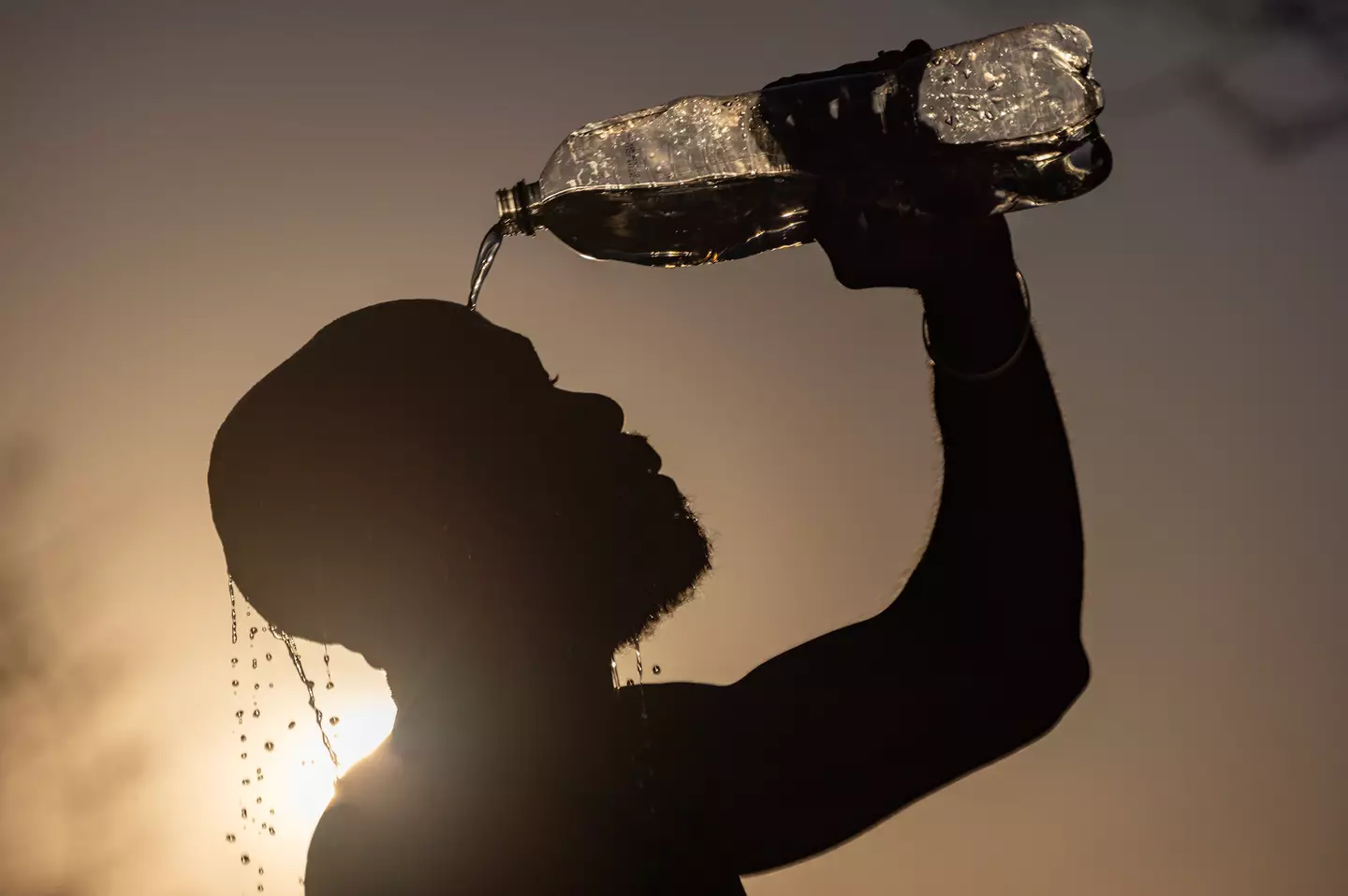
As over-heating Brits attempt to cool themselves down using any and all means necessary amid the 'mini heatwave' gripping the nation this week, medics are urging those who take a particular type of medication to heed a pretty urgent health warning.
On Monday this week (24 June), those inhabiting our usually dull and dreary island were issued a a 'Yellow Health-alert' handed out by the UK Health Security Agency and Met Office.

That's because, until Thursday evening, parts of England are still expected to hit staggering temperatures, with the sunny-sounding alert informing Brits that the peaks of up to 31 degrees is likely to affect our more vulnerable members of society.
Advert
Those living in the East Midlands, the East of England, East Anglia and the South East were issued the most severe warnings earlier this week, with 'potential for significant impacts to be observed across the health and social care sector due to the high temperatures' being expected.
These impacts were expected to be 'an observed increase in mortality across the population likely, particularly in the 65+ age group or those with health conditions, but impacts may also be seen in younger age groups'.
It isn't just the elderly or the young who are most likely to feel the often-distressing effects of our nationwide heatwave, with doctors this week urging those on medication for certain mental health conditions to take extra care when stepping into the sun.

Advert
In particular, those receiving treatment for depression or psychosis have been deemed the most at risk, with many sufferers apparently unaware of the potentially harmful link between medication for these ailments and hot weather.
Which medication can be affected?
According to representatives of the Royal College of Psychiatrists - as reported by the BBC - some of these treatments, specifically sertraline (Zoloft) and TCAs such as amitriptyline (Elavil), can affect the body's ability to regulate its temperature, which could lead to dehydration.
These medicines have been found to trigger excessive sweating, but it can also make patients unable to register their level of thirst.
Advert
On top of this, antidepressants and antipsychotics have also been found to make their recipient's skin significantly more sensitive to sunlight, making them susceptible to burning.
And being that - according to NHS research gathered last year last year - around 8.3 million adults in England alone have been prescribed with antidepressants - it's no surprise that, this week in particular, medics are warning patients about the weather-related risks.

Advice from doctors:
When it comes to how the NHS says that recipients of these types of medication should act going forward, they first and foremost emphasise that those on antidepressants and antipsychotics should not be tempted to avoid taking them.
Advert
That's because there are actually a number of ways that sufferers of these common mental illness' can take matters into their own hands, by:
- Using higher factor sunscreen when outdoors, or avoiding sunlight altogether
- Keeping their body temperature as low as possible, for example, by drinking lots of cold water
- Keeping curtains and windows closed at home to retain a cold atmosphere
- Wearing loose, light-coloured clothing made out of natural materials, including linen and cotton - as well as a hat when outdoors
- Avoiding strenuous physical activity
- Avoiding alcohol, which can contribute to increased body temperature
- Taking cool baths or showers
- Consulting with their doctors if they're considering coming off medication.
Topics: Weather, UK News, Mental Health, Health